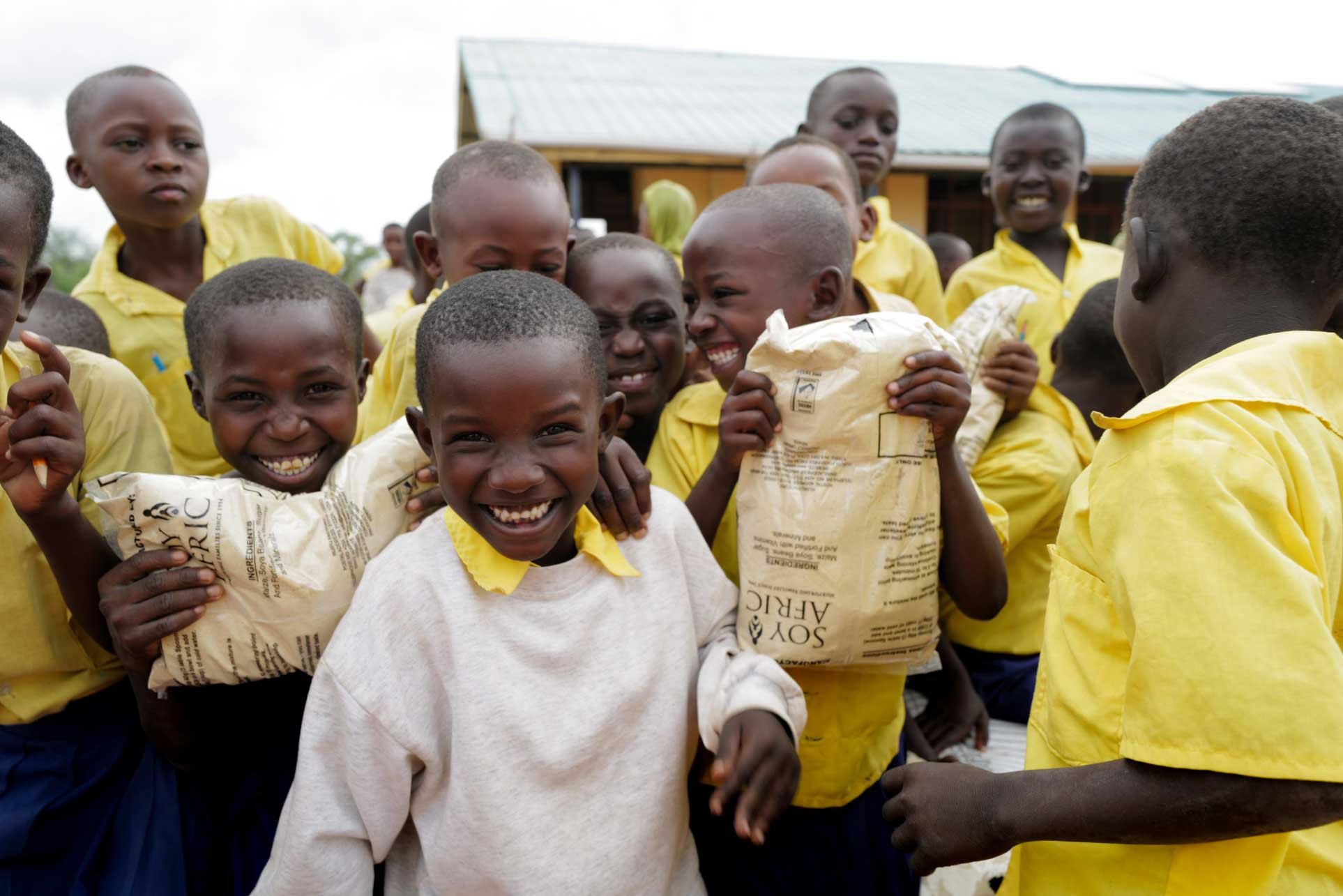
Severe drought school food assistance programs in the Greater Amboseli-Tsavo-Chyulu regions
Partner: Sheldrick Wildlife Trust
Launched: September 2022
Severe drought school food assistance programs in the Greater Amboseli-Tsavo-Chyulu regions
Tsavo National Park, to the western flank of Amboseli, is one of Africa's greatest remaining wildernesses and the largest national park in Kenya, home to many endangered species of wildlife, especially elephant and the ecosystem’s last big tuskers. The Nasaru and Galana/Kulalu Conservancies border the park and serve as important wildlife corridors and buffer zones.
From 2021 through 2023, the region endured its most devastating drought in decades, resulting in a crisis for both wildlife and the regional Maasai communities. Scarce water resources and dwindling food supplies disrupted nature’s delicate balance, often leading to human-wildlife conflict and an increase in poaching and incidences of wild animals raiding community crops. The communities faced an unrelenting existential ordeal, including an acute increase in children who endured malnourishment, fatigue, illness, and the inability to participate in school.
Our partners at the Sheldrick Wildlife Trust have for years worked in Tsavo East and the contiguous region to secure the park as a safe haven for wildlife, and to create a more harmonious coexistence with humans in which conservation efforts benefit everyone involved. Framed within our larger conservation goal, an immediate priority became to collaborate with SWT to implement school food assistance programs in the Tsavo National Park region.
The objective of these programs has been to bring nourishment to children in the area and provide relief to families, as well as alleviate poaching pressure, as many of these families turned to bushmeat as their only source of sustenance. At the same time, we have aimed to facilitate higher attendance and energy/concentration levels, while swinging public support to conservation.
We identified more than 50 primary schools in the regions worst hit by drought and worked to provide these schools with essential food assistance, a highly nutritious porridge enriched with vitamins, crafted by Soy Afric. Before the distribution of the sacs, CCF’s project manager, alongside a representative from SWT, typically meet with students, teachers, chief officers, and village elders for a workshop on the importance of protecting wildlife and natural habitat. In these conversations, we emphasize the connection between humans and nature and the need to protect their heritage and the environment by planting trees, protecting wildlife, and preserving wild spaces. We also discuss the negative impacts of activities such as cutting down trees and the charcoal trade, and the role both can play in combating climate change.
Our program quickly expanded to include 52 individual schools in 2023, including in the Nasaru- Olosho, Ithumba, Galana/Kulalu, and Kone/Assa Conservancies, for a total of 15,288 students across the Tsavo East region. In January 2023, we expanded our food aid program to include additional schools in the Nasaru Conservancy for a total of 67.
The positive impact of the food assistance programs exceeded all expectations. Attendance and academic performance improved in all the schools. 47 of the schools planted trees in their yards; CCF 2024 5 many set up wildlife clubs and installed bird tables. The children have enthusiastically shared their experiences with us in letters and other testimonials.
In early 2024, the region saw a reversal of climate fortune, with heavy volumes of rain that have provided sustenance for both wildlife and livestock. Even before this, in late 2023, the area had seen some new vegetation growth. Nonetheless, given the tangible success of the school feeding program and the fact that families are once again struggling with climate-change-induced hardship (lost crops, compromised transportation, drownings), we have extended our school supplemental feeding program for the time being. We are reaching 64 schools (13,984 students), out of an intended 67 schools, due to a security situation on the Eastern side of the park, where the issue of livestock incursions has become a contentious issue between KWS and the community. We are trying to identify 3 similar-sized schools on the Ithumba side to serve instead; the areas covered will be Nasaru, Ithumba/Gazi, and Galana/Kulalu (minus Kone/Assa).
Impact Overview:
• 2023: $217,988 total school feedings with SWT and other partners
• 2024: $69,261 so far • In 2023, 67 schools and 15,288 students reached monthly in the Tsavo East region, with 14,496 kgs of Soy Africa Blend per month.
• In 2024, 64 schools and 13,984 students (14,668 if Kone is replaced)

Haburu Kids Kalalu

Kavete Primary

Galana Primary with Trees they Planted
